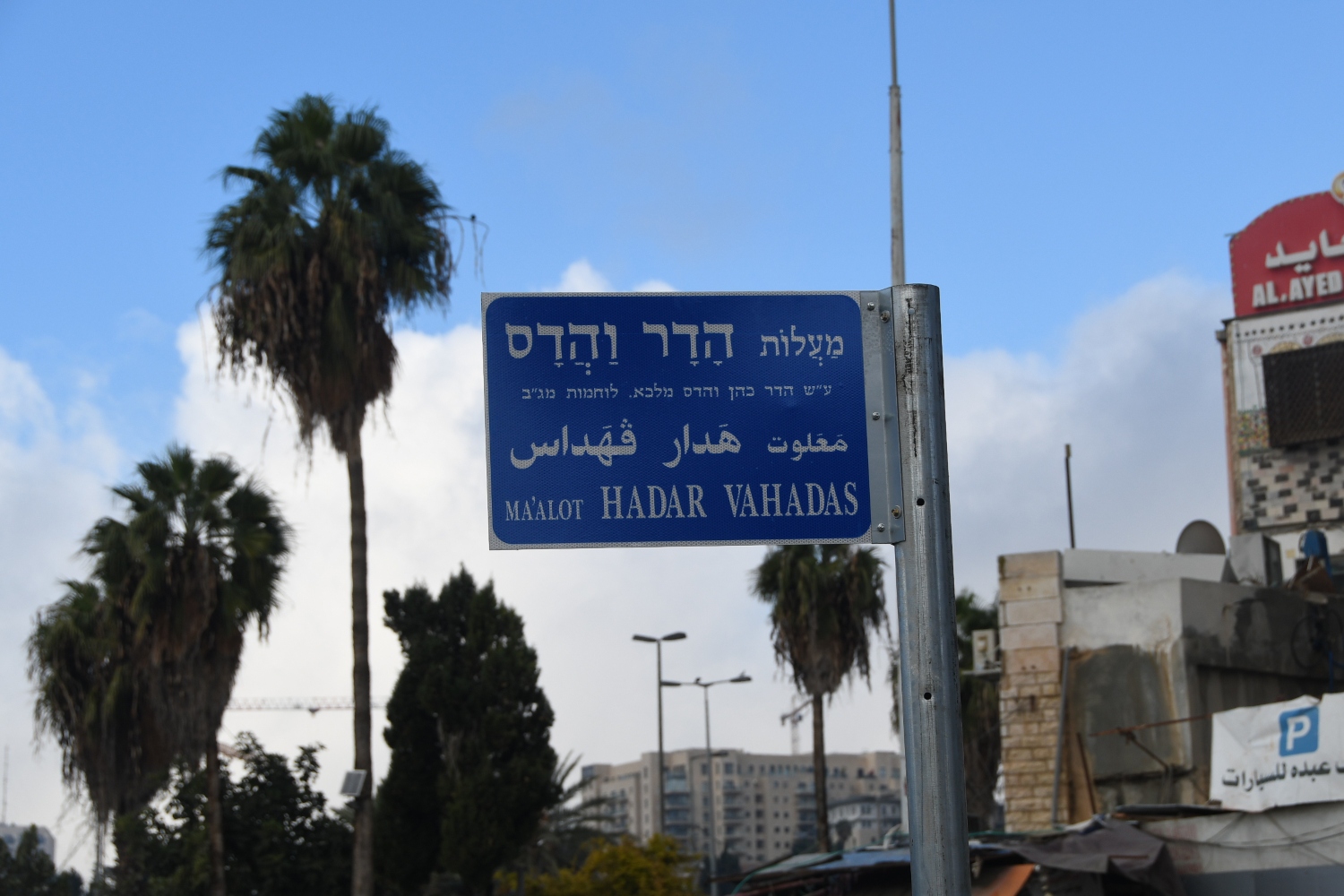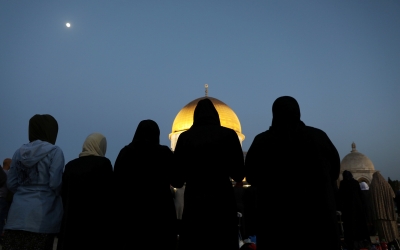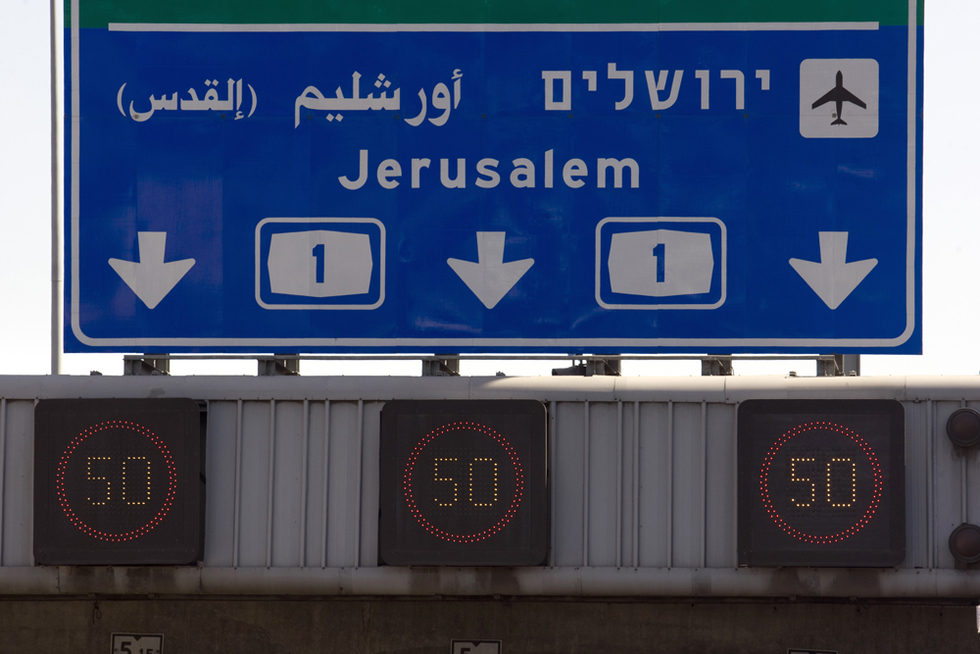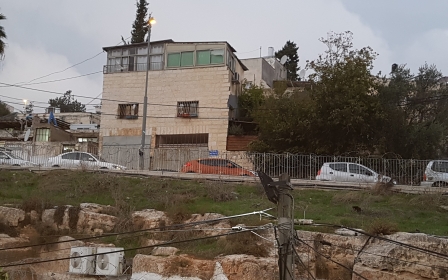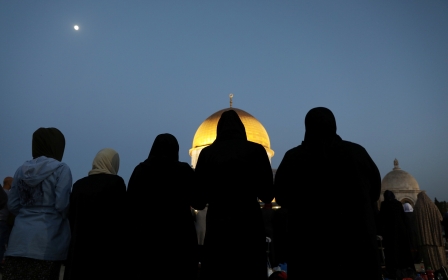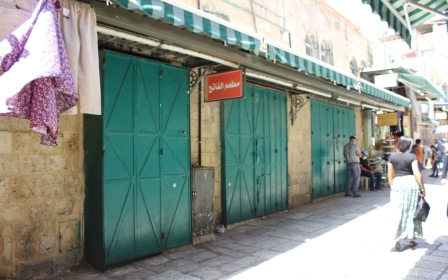Jerusalem municipality sparks controversy by renaming Damascus Gate steps
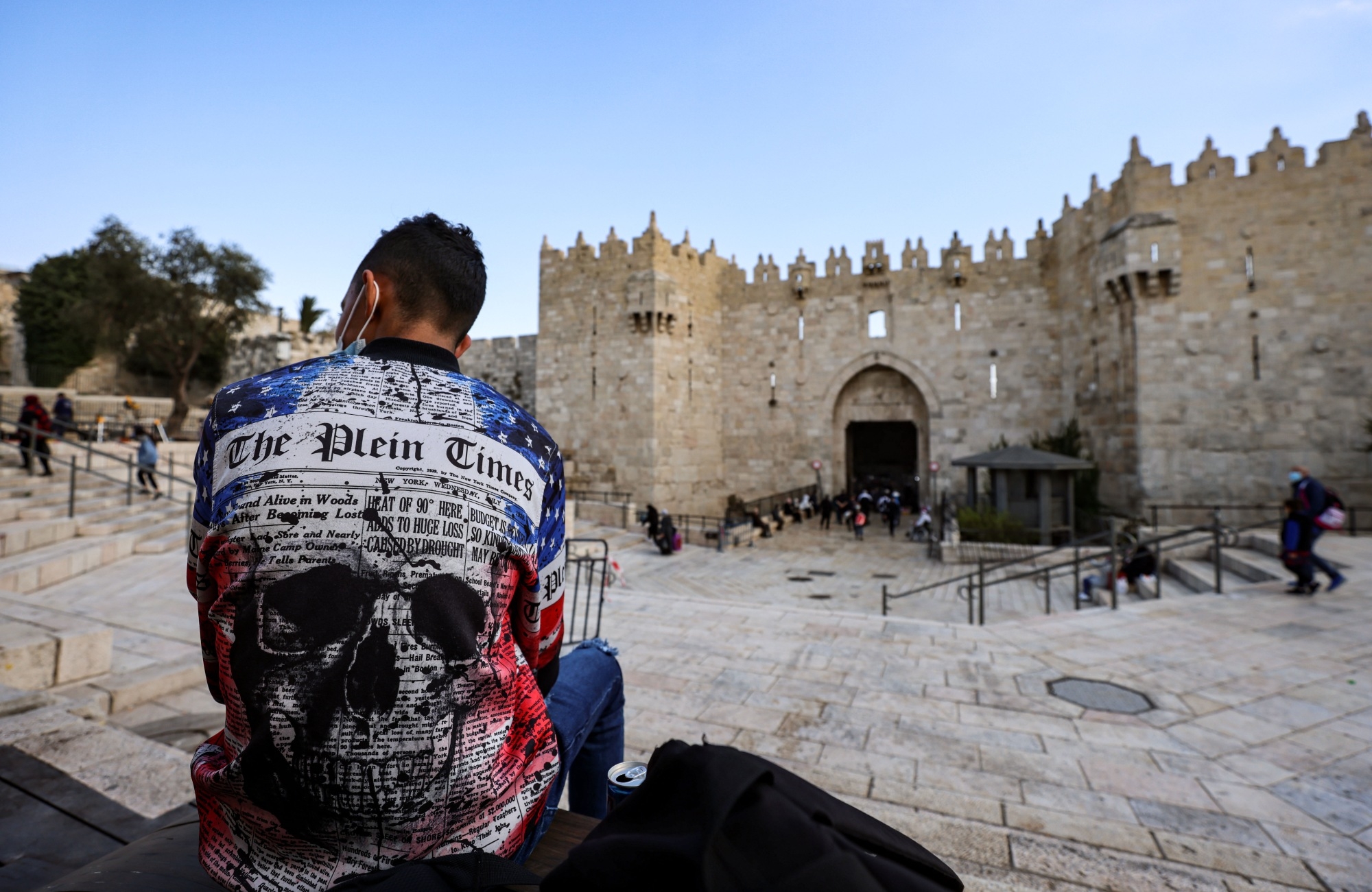
As one approaches the white walls of the Old City of occupied East Jerusalem, an amphitheatre-style set of stairs takes one down to the famous Damascus Gate.
Business owners carrying large trays atop their heads clamber up and down and women in hijab and men with traditional Palestinian keffiyehs sit along the limestone steps as Israeli soldiers watch them with their guns pressed to their chests.
For Palestinians in Jerusalem, Damascus Gate is a site of community, culture and political significance - but in October, the Israeli municipality of Jerusalem erected a sign reading “Ma’Alot Hadar VaHadas, or “Hadar and Hadas Steps” in Hebrew, after Israeli border police officers Hadar Cohen and Hadas Malka, who were killed in confrontations with Palestinians at Damascus Gate in 2016 and 2017, respectively.
The move is seen as a further step in what advocates say is a long history of Israeli authorities renaming geographic areas to erase Palestinian heritage.
New MEE newsletter: Jerusalem Dispatch
Sign up to get the latest insights and analysis on Israel-Palestine, alongside Turkey Unpacked and other MEE newsletters
‘Serving the occupation narrative’
The decision was made by Jerusalem’s street names committee on 24 September 2019 after an application was filed by the two women’s families and pushed by city council member Dan Illouz.
While one of the mayor’s advisors for East Jerusalem affairs said the naming process was open for public debate and comment, Palestinian Jerusalemites like Rami Saleh, a director at Jerusalem Legal Aid and Human Rights Center (JLAC), disputes this, saying they only became aware of the decision after the sign was installed.
“As Jerusalemites, we pass by [Damascus Gate] on a daily basis, and we were surprised to see [the municipality] change the names of an important spot for us as Palestinians,” Saleh told Middle East Eye. “We use it for demonstrating, for calling for our rights and especially, these steps of Damascus Gate are where many Palestinians have been killed.”
Scores of Palestinians have been killed by Israeli forces at Damascus Gate over the years, particularly during a wave of unrest in late 2015. Many such deaths were never investigated by Israeli authorities.
JLAC published a petition online in response to the municipality’s decision, calling the move a “colonial name that serves the occupation narrative”.
The petition goes on to assert that Palestinians will continue to refer to the area as the steps of the Bab al-Amud (meaning "column gate", the name for Damascus Gate in Arabic), the original name for the northwestern entrance to the Old City.
'The reason why it matters is that it fundamentally chips away at people's sense of place, which is a very integral part of being human'
- Zena Agha, Al-Shabaka policy analyst
In addition to this petition, JLAC is also planning to send an objection to the municipality. The organisation argues that by not consulting with Palestinians, the Jerusalem municipality “violates the principle of free, prior and informed consent stipulated in the United Nations Declaration on the Rights of Indigenous Peoples”.
Despite these efforts, JLAC believes that the matter might be taken to court in the near future, expecting that the municipality may counter that the naming was a legal procedure unanimously accepted by the committee.
The move comes two years after Israel installed a permanent watchtower checkpoint at Damascus Gate, a move which was seen by Palestinian Jerusalemites as seeking to further prevent Palestinians' access to the Old City and restrict their access to Damascus Gate.
War of words
While officials with the mayor’s office have emphasised that the name of Damascus Gate itself hasn’t changed, just the staircase, architecture historian at Al-Quds University Yousef Natsheh has objected to this logic.
“Naming the steps of Damascus Gate with a different name is an attempt to separate the monument of Damascus Gate from its architectural space,” Natsheh said in JLAC’s objection statement. “This is the spirit, this is the space, this is the border of Damascus Gate. How are you going to separate between a soul and a body?”
Efforts to rename the surroundings of Damascus Gate don’t end with its staircase. The municipality has also approved requests to change the name of Sultan Suleiman Street, a Palestinian commercial artery that runs parallel to Damascus Gate, to “Heroines Street” after the killed soldiers Cohen and Malka.
Ever since Israel’s inception, observers have pointed out the state’s use of language to assert its dominance over Palestine, in what Al-Shabaka policy analyst Zena Agha called “Zionist nation-building”.
Israel established the Government Naming Committee in 1950, with the sole purpose of turning Arabic place names into Hebrew ones. This project has Hebraicized thousands of names and continues to do so until today.
“Driving into Al-Quds, you see a sign that says ‘Yerushalayim’ written in Arabic,” Agha told Middle East Eye, referring to Jerusalem by its Arabic name.
“Having a Hebraicization of that name in the language that the marginalised community speaks is not only an act of erasure, but also an act of violence. And the reason why it matters is that it fundamentally chips away at people's sense of place, which is a very integral part of being human.”
As Israel’s naming committees work to literally take Arabic off the map, Saleh points out that the Israeli government appears to ignore areas named by the British Mandate, such as King George Street and King Faisal Street.
“They haven’t changed these names, so why have they changed the names of Palestinian heritage?” Saleh said. “It’s obvious for us. It is an act of colonialism by the Israeli municipality.”
Middle East Eye delivers independent and unrivalled coverage and analysis of the Middle East, North Africa and beyond. To learn more about republishing this content and the associated fees, please fill out this form. More about MEE can be found here.


